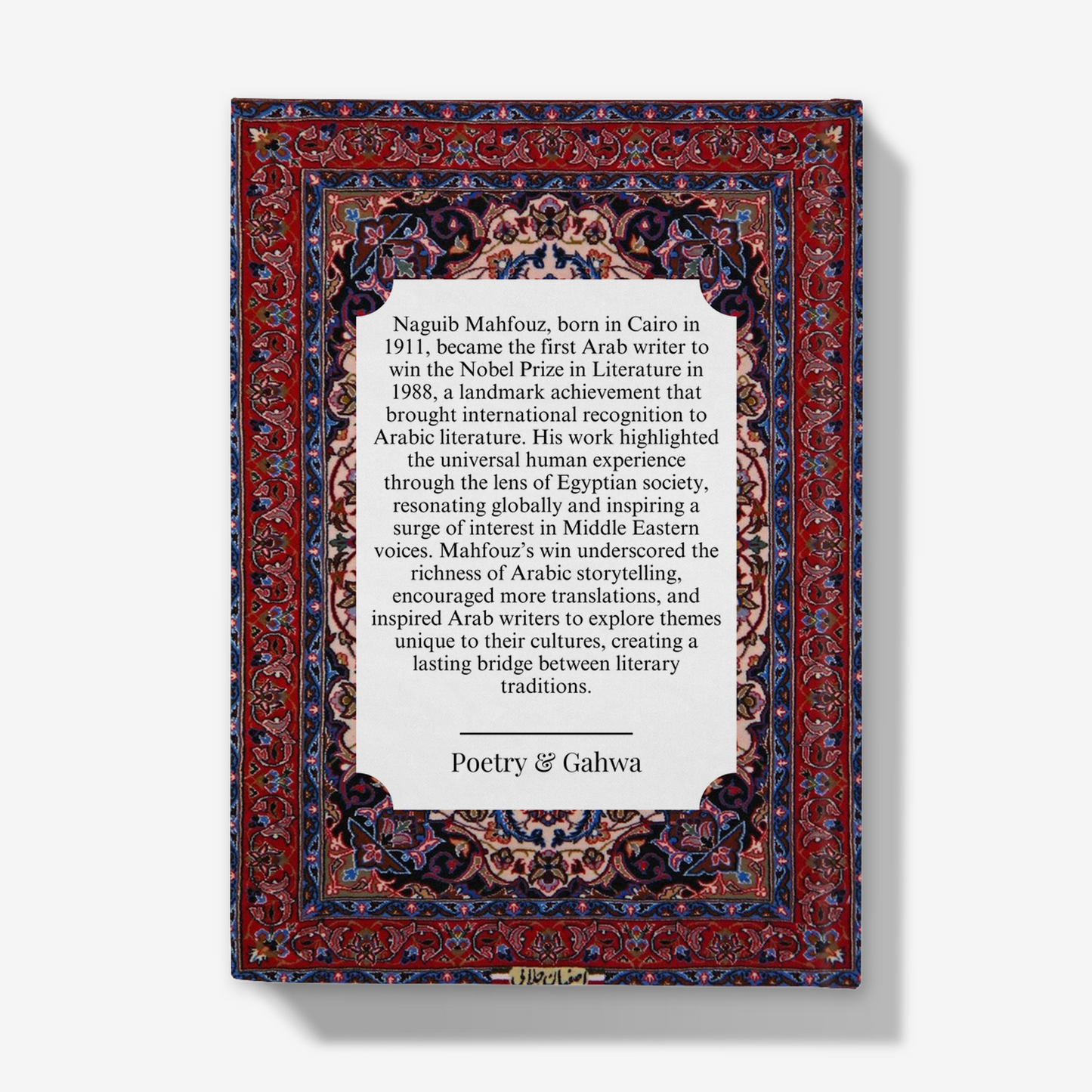Poetry & Gahwa
Naguib Mahfouz: 'You can tell whether man is clever by his answers. You can tell whether a man is wise by his questions' Journal
Naguib Mahfouz: 'You can tell whether man is clever by his answers. You can tell whether a man is wise by his questions' Journal
Couldn't load pickup availability
'You can tell whether man is clever by his answers. You can tell whether a man is wise by his questions'
~Naguib Mahfouz
Experience the art of writing with the Naguib Mahfouz Journal, a timeless companion for those who cherish the elegance of thoughtful design.
Available in a convenient 5 x 7” format, this journal offers a robust 260gsm hardback cover with a chipboard construction and refined vinyl laminate finish, providing unmatched durability and sophistication.
Inside, 128 pages of premium 90gsm paper await your every word, idea, or sketch.
Choose from ruled, graph, or blank pages to best suit your unique creative pursuits.
With full-bleed print on the front and back covers, the Ibn Sina Journal is crafted to inspire and elevate your writing experience.
Whether for journaling, note-taking, or artistic exploration, this journal transforms the simple act of writing into an art form.
ABOUT NAGUIB MAHFOUZ
Naguib Mahfouz, born in Cairo in 1911, was a trailblazer in modern Arabic literature and achieved global recognition in 1988 when he became the first Arab writer to win the Nobel Prize in Literature. This prestigious accolade not only celebrated Mahfouz’s literary prowess but also marked a significant milestone for Arabic literature on the world stage. Mahfouz’s award brought international attention to a region whose literary contributions were often overlooked, highlighting the depth and sophistication of Arabic storytelling. It was a transformative moment, as Mahfouz’s work demonstrated the universality of the human experience through the lens of Egyptian society, resonating with readers far beyond his homeland.
Winning the Nobel Prize was a turning point, not just for Mahfouz but for Arabic literature as a whole. His achievement inspired a new wave of interest in Middle Eastern voices and encouraged translation efforts that made Arabic works more accessible to global audiences. Mahfouz became a cultural ambassador, illustrating how literature could bridge cultural divides and foster understanding. His Nobel win also emboldened Arab writers to explore themes relevant to their own societies and histories, and it set a precedent for Arabic literary contributions to be recognized and celebrated on a global scale. Through his Nobel recognition, Mahfouz illuminated the shared humanity in stories from the Arab world, creating a lasting impact on literature worldwide.



